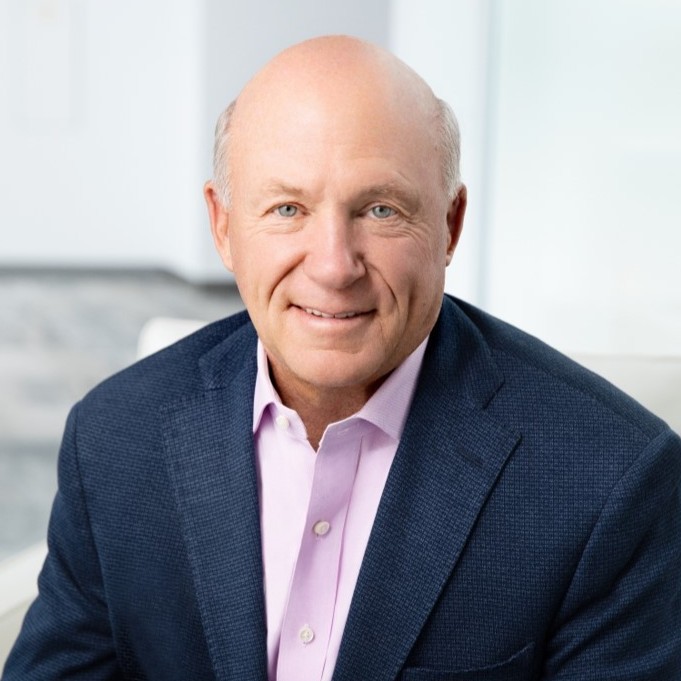Discovering Leadership Brilliance: Lessons from Virgin Group’s Maverick Trailblazer
 Exploring the Unconventional Leadership Legacy of Richard Branson and Virgin Group
Exploring the Unconventional Leadership Legacy of Richard Branson and Virgin Group
In the vast landscape of business leaders, there are a few names that stand out as true pioneers, disruptors, and visionaries. One such name is Richard Branson, the founder of Virgin Group. With a charismatic personality and an unwavering commitment to pushing boundaries, Branson has become an icon of entrepreneurial success and an embodiment of unconventional leadership.
Over the past four decades, Richard Branson and his Virgin Group have revolutionized industries, shattered norms, and left an indelible mark on the business world. From the humble beginnings of a mail-order record business to a global conglomerate encompassing more than 400 companies, Virgin Group’s journey is an extraordinary tale of audacity, innovation, and relentless pursuit of excellence.
This article sets out to explore the leadership lessons and stories from Virgin Group, shedding light on the unique leadership style of Richard Branson and the company’s unparalleled success. By delving into the intricacies of Branson’s approach to leadership, we can uncover invaluable insights applicable to aspiring leaders across industries.
At the heart of Richard Branson’s leadership philosophy lies a willingness to take risks and embrace innovation. Branson’s audacious ventures, such as Virgin Records, Virgin Atlantic Airways, and Virgin Galactic, exemplify his relentless pursuit of uncharted territories. Through the lens of Virgin Group’s journey, we will delve into the lessons of embracing risk and fostering innovation within organizations.
Furthermore, Richard Branson’s leadership legacy is characterized by his unwavering focus on people. He has consistently emphasized the importance of treating employees and customers as the company’s most valuable assets. By analyzing Virgin Group’s approach to employee satisfaction and customer experience, we will glean valuable insights on how to build a people-centric organization that thrives on a culture of care and excellence.
Branding and marketing mastery are yet another key facet of Virgin Group’s success story. Branson’s innate ability to capture attention, create buzz, and cultivate a strong brand identity has propelled the company to unparalleled heights. We will explore Virgin Group’s branding strategies and learn valuable lessons on building and managing a powerful brand that resonates with customers.
Effective communication and collaboration have been foundational pillars of Richard Branson’s leadership style. Through his transparent and accessible communication channels, Branson has fostered a culture of open dialogue and collaboration within Virgin Group. By examining the significance of communication and collaboration, we will uncover insights on building strong teams and establishing a collaborative environment that drives success.
Beyond business success, Richard Branson has embodied a purpose-driven leadership approach. Virgin Group’s commitment to social responsibility, sustainability, and philanthropy has demonstrated the power of aligning business objectives with societal and environmental impact. By exploring Virgin Group’s initiatives, we will learn invaluable lessons on integrating social responsibility into an organization’s core values.
As we embark on this exploration of leadership lessons and stories from Virgin Group, it becomes evident that Richard Branson’s journey is far more than just a tale of entrepreneurial triumph. It is a testament to the power of audacity, innovation, and a people-centric approach to leadership.
Join us on this captivating journey as we uncover the secrets behind Richard Branson’s leadership style and the transformative impact of Virgin Group’s ventures. Through the anecdotes, lessons, and experiences shared, aspiring leaders can glean invaluable insights that will inspire them to chart their own path to success, leaving an indelible mark on the world of business.
Setting the Stage: Virgin Group’s Journey
Background information on Virgin Group’s founding and growth
To truly appreciate the leadership lessons and stories of Virgin Group, it is essential to understand the remarkable journey that led to its establishment. In 1970, a young and ambitious Richard Branson started his entrepreneurial venture with Virgin Records, a mail-order record business. Branson’s passion for music and his keen business acumen soon catapulted Virgin Records to prominence, signing groundbreaking artists and challenging industry norms.
Building upon the success of Virgin Records, Branson ventured into new industries, defying conventional wisdom and embracing risks along the way. In 1984, he launched Virgin Atlantic Airways, disrupting the airline industry with a unique focus on customer experience and a bold sense of style. This move marked the beginning of Virgin Group’s expansion into diverse sectors, including telecommunications, media, leisure, and even space travel.
Key milestones and achievements
Along its extraordinary journey, Virgin Group has achieved numerous milestones that have solidified its status as a global powerhouse. One of the most notable milestones came in 1992 when Virgin Atlantic Airways successfully challenged British Airways’ dominance by winning the “dirty tricks” campaign lawsuit. This victory not only demonstrated Branson’s tenacity but also positioned Virgin Atlantic as a formidable player in the aviation industry.
Another significant achievement was the launch of Virgin Mobile in 1999, a pioneering move in the telecommunications sector. With its innovative approach to pricing and customer service, Virgin Mobile disrupted traditional telecom models and attracted a loyal customer base. This success laid the foundation for Virgin Group’s expansion into the mobile industry worldwide.
In recent years, Virgin Galactic has emerged as a trailblazing venture under the Virgin Group umbrella. With the mission to make space tourism accessible to the masses, Branson’s ambitious project represents a new frontier in the realm of space exploration. Virgin Galactic’s successful test flights and plans for commercial space travel demonstrate Branson’s unwavering determination to push boundaries and explore uncharted territories.
Overview of Virgin Group’s diverse business ventures
What sets Virgin Group apart is the sheer diversity of its business ventures. From airlines, hotels, and trains to health clubs, music labels, and financial services, Virgin Group has ventured into a wide array of industries. This eclectic mix not only showcases Branson’s versatility as a leader but also highlights his ability to identify opportunities and disrupt existing markets.
Some notable subsidiaries under the Virgin Group umbrella include Virgin Money, Virgin Active, Virgin Media, Virgin Trains, and Virgin Voyages. Each of these ventures reflects Branson’s passion for innovation, customer-centricity, and a commitment to delivering exceptional experiences.
By exploring the breadth and depth of Virgin Group’s ventures, we gain a deeper appreciation for the audacity and entrepreneurial spirit that have driven the company’s success. From the early days of Virgin Records to the groundbreaking projects of Virgin Galactic, Branson’s vision and leadership have consistently propelled Virgin Group to new heights, solidifying its position as a global force to be reckoned with.
As we delve further into the leadership lessons and stories of Virgin Group, we will uncover the underlying principles and strategies that have fueled its growth. From Branson’s relentless pursuit of innovation to his unwavering commitment to people and purpose, Virgin Group’s journey serves as an inspirational blueprint for aspiring leaders looking to make their mark on the business world.
The Leadership Style of Richard Branson
Characteristics and traits of Richard Branson as a leader
Richard Branson’s leadership style is characterized by a unique blend of charisma, audacity, and a people-centric approach. His larger-than-life personality and ability to connect with people on a personal level have made him an iconic figure in the business world. Branson exudes enthusiasm and infectious energy, inspiring those around him to push beyond limits and embrace innovation.
One of Branson’s notable traits is his willingness to take calculated risks. He is unafraid to venture into uncharted territories and disrupt established industries. Branson’s audacious moves, such as starting an airline or launching a space tourism company, demonstrate his boldness and ability to seize opportunities others might shy away from. This fearlessness in the face of uncertainty has been instrumental in Virgin Group’s success.
Another key aspect of Branson’s leadership is his emphasis on empowerment and trust. He believes in hiring talented individuals, delegating authority, and giving them the freedom to excel in their roles. Branson is known for surrounding himself with a diverse team of experts, encouraging them to take ownership of their responsibilities and fostering a culture of collaboration. This trust in his team has allowed Virgin Group to thrive and innovate across its various ventures.
Branson’s unconventional approach to leadership
Branson’s leadership style deviates from traditional hierarchical structures and embraces a more egalitarian and inclusive approach. He is not driven by ego or the desire for control but instead values open communication and collective decision-making. Branson’s “flat” organizational structure promotes a sense of equality and empowers employees at all levels to contribute their ideas and perspectives.
Additionally, Branson embraces a “screw it, let’s do it” mentality, challenging conventional wisdom and encouraging a culture of experimentation and learning from failure. This approach fosters a dynamic and agile environment within Virgin Group, where innovation and adaptability are valued over rigid processes and fear of making mistakes. Branson’s willingness to embrace failure as an opportunity for growth sets a powerful example for his team and inspires them to think outside the box.
Branson’s leadership philosophy and values
At the core of Richard Branson’s leadership philosophy are the values of fun, adventure, and making a positive impact. He believes that work should be enjoyable, and he encourages his employees to find joy and fulfillment in their daily tasks. Branson’s philosophy revolves around the idea that when individuals are passionate about what they do, they are more likely to excel and drive the company’s success.
Branson also prioritizes the well-being of his employees, recognizing that a happy and engaged workforce is essential for sustained growth. He advocates for work-life balance and supports initiatives that promote employee well-being and mental health. By prioritizing the needs and happiness of his employees, Branson has built a loyal and dedicated team that is motivated to go above and beyond.
Furthermore, Branson is a firm believer in the power of purpose-driven leadership. He understands that businesses have a responsibility to make a positive impact on society and the environment. Branson has championed numerous social and environmental causes, actively working towards creating a more sustainable and equitable world. His commitment to social responsibility aligns with the values of the younger generations and has helped attract socially conscious consumers to Virgin Group’s brands.
In summary, Richard Branson’s leadership style is a fusion of audacity, empowerment, and a deep commitment to people and purpose. His unconventional approach to leadership has defied industry norms and set Virgin Group apart. By embodying a charismatic and inclusive leadership style, Branson has cultivated a culture of innovation, collaboration, and purpose that has been instrumental in Virgin Group’s success story.
Leadership Lesson 1: Embracing Risk and Innovation
Concept of risk-taking and innovation
One of the most prominent leadership lessons we can learn from Richard Branson and Virgin Group is the art of embracing risk and fostering a culture of innovation. Branson’s audacious ventures, from Virgin Records to Virgin Galactic, highlight his willingness to challenge the status quo and explore uncharted territories. This fearless approach to risk-taking has not only propelled Virgin Group to new heights but also serves as a valuable lesson for aspiring leaders.
Examples of how Virgin Group embraced risk and pushed boundaries
Virgin Group’s history is filled with instances where Branson and his team embraced risks that others deemed too daunting. One noteworthy example is the launch of Virgin Atlantic Airways in 1984, a bold move that defied the dominance of established airlines. Branson saw an opportunity to disrupt the industry by focusing on exceptional customer service, innovative amenities, and a distinctive brand image. Despite initial skepticism, Virgin Atlantic flourished and became a key player in the aviation industry.
Another example of Virgin Group’s risk-taking and innovative mindset is the foray into the space tourism industry with Virgin Galactic. Branson’s vision of making space travel accessible to civilians required immense investment, technological advancements, and regulatory approvals. By venturing into uncharted territory, Virgin Galactic is paving the way for a new era of space exploration and tourism. This audacious move demonstrates Branson’s ability to see beyond conventional boundaries and envision a future that others might consider impossible.
Lessons on creating a culture that fosters innovation and encourages risk-taking
Branson’s approach to risk-taking and innovation offers valuable lessons on how leaders can create a culture that nurtures and encourages these qualities within their organizations:
-
Encourage a growth mindset: Branson understands the importance of fostering a growth mindset among employees, encouraging them to embrace challenges and view failures as learning opportunities. By promoting a culture that celebrates learning and resilience, leaders can inspire their teams to think innovatively and take calculated risks.
-
Provide a safe environment for experimentation: Branson’s willingness to embrace failure as a natural part of the innovation process creates a safe space for employees to experiment and take risks. Leaders can foster innovation by encouraging an environment where ideas are welcomed, failures are seen as stepping stones to success, and creativity is rewarded.
-
Empower and trust employees: Branson believes in empowering his employees, giving them autonomy and trust to make decisions and take ownership of their work. Leaders can cultivate a culture of innovation by delegating authority, providing resources and support, and allowing employees to take calculated risks within their roles.
-
Embrace diverse perspectives: Virgin Group’s success is also attributed to its diverse workforce and the multitude of perspectives it brings. Leaders should seek diversity in their teams, as different backgrounds, experiences, and ideas can fuel innovation and challenge the status quo.
-
Lead by example: Branson leads by example, taking risks himself and demonstrating a willingness to step out of his comfort zone. Leaders who embody a risk-taking and innovative mindset inspire and motivate their teams to do the same.
By embracing risk and fostering a culture of innovation, leaders can create an environment where new ideas flourish, and breakthroughs become the norm. The lessons learned from Richard Branson and Virgin Group highlight the power of audacity and innovation in driving success and staying ahead in an ever-changing business landscape.
Leadership Lesson 2: Putting People First
Importance of prioritizing employees and customers
A key pillar of Richard Branson’s leadership philosophy is his unwavering commitment to putting people first. Branson recognizes that the success of any organization hinges on the satisfaction and well-being of its employees and customers. By prioritizing the needs and happiness of both groups, Branson has built a foundation of loyalty, trust, and excellence that sets Virgin Group apart.
Virgin Group’s focus on employee satisfaction and customer experience
Virgin Group’s success can be attributed in part to its relentless focus on creating exceptional experiences for both employees and customers. Branson understands that a happy and engaged workforce leads to better customer service and business outcomes. For instance, at Virgin Atlantic, employees are known as “red ties” and are empowered to go above and beyond to deliver outstanding service. This focus on employee satisfaction translates into exceptional customer experiences, fostering customer loyalty and advocacy.
Virgin Group’s commitment to customer experience is also evident in its ventures such as Virgin Hotels and Virgin Voyages. These ventures prioritize creating unique, personalized experiences that go beyond traditional hospitality offerings. From innovative room designs to tailored guest services, Virgin Group’s focus on customer-centricity sets it apart from competitors.
Lessons on building a people-centric organization and fostering a positive work culture
Richard Branson’s emphasis on people-centric leadership offers valuable lessons for leaders striving to build a culture of care and excellence:
-
Nurture a positive work culture: Branson understands that a positive work culture is essential for employee engagement and productivity. Leaders should create an environment where employees feel valued, respected, and supported. This can be achieved through open communication, recognition of achievements, and providing opportunities for growth and development.
-
Empower and trust employees: Branson empowers his employees by trusting them to make decisions and take ownership of their work. Leaders should delegate authority, provide autonomy, and encourage employees to take initiative. When employees feel trusted and empowered, they become more engaged and motivated to contribute their best.
-
Prioritize employee well-being: Branson recognizes the importance of work-life balance and supports initiatives that promote employee well-being. Leaders should prioritize the physical, mental, and emotional health of their employees, offering flexible work arrangements, wellness programs, and opportunities for personal development.
-
Deliver exceptional customer experiences: By prioritizing customer experience, leaders can build a loyal customer base and differentiate their organization from competitors. Leaders should invest in understanding customer needs, delivering personalized services, and continuously seeking feedback to improve products and services.
-
Lead with empathy and authenticity: Branson’s leadership style is characterized by his genuine care for people. Leaders should lead with empathy, actively listening to their employees and customers, and showing authentic concern for their well-being. By connecting on a human level, leaders can foster trust, loyalty, and a sense of belonging.
By putting people first, Richard Branson has created a virtuous cycle of employee satisfaction, customer loyalty, and business success. The lessons learned from Virgin Group’s focus on employee and customer experiences underscore the transformative power of building a people-centric organization. Leaders who prioritize the well-being and satisfaction of their employees and customers are more likely to create sustainable, thriving enterprises.
Leadership Lesson 4: Effective Communication and Collaboration
Richard Branson’s communication style and its impact on Virgin Group
Effective communication lies at the core of Richard Branson’s leadership style and has played a significant role in Virgin Group’s success. Branson is renowned for his open, transparent, and accessible communication style, which fosters trust, alignment, and collaboration within the organization. His ability to connect with employees, customers, and stakeholders on a personal level has been instrumental in driving Virgin Group’s growth and maintaining a strong brand reputation.
Branson’s communication style is characterized by active listening, empathy, and authenticity. He takes the time to genuinely understand the perspectives and concerns of others, creating an environment where ideas can flourish and challenges can be openly addressed. By being approachable and responsive, Branson has cultivated a culture of open dialogue, where individuals at all levels feel valued and heard.
The impact of Branson’s communication style is evident in Virgin Group’s collaborative and innovative work environment. Employees are encouraged to share their ideas, challenge assumptions, and engage in constructive discussions. This open communication culture allows for the cross-pollination of ideas and enables the organization to adapt quickly to changing market dynamics. Moreover, Branson’s transparent communication style helps align employees’ actions and decisions with the company’s overarching vision and values.
Collaboration within the organization and with external partners
Collaboration is a cornerstone of Virgin Group’s success, and Richard Branson actively fosters a collaborative mindset within the organization. Branson believes that by working together, diverse teams can achieve extraordinary results. He promotes a sense of collective ownership and encourages collaboration across departments and ventures.
Virgin Group’s collaborative approach extends beyond its internal operations. Branson actively seeks partnerships and collaborations with external stakeholders, recognizing that collaboration can lead to synergistic outcomes and mutual growth. By partnering with other industry leaders, Branson leverages their expertise, resources, and networks to expand Virgin Group’s reach and impact.
Lessons on fostering open communication channels and promoting collaboration
Richard Branson’s approach to communication and collaboration provides valuable lessons for leaders seeking to foster a culture of effective communication and collaboration:
-
Prioritize transparency: Leaders should strive for transparency in their communication, sharing information, insights, and challenges openly with their teams. Transparent communication builds trust, facilitates informed decision-making, and encourages collaboration.
-
Actively listen and show empathy: Leaders should actively listen to their employees, customers, and stakeholders, seeking to understand their perspectives, needs, and concerns. By showing empathy and demonstrating genuine care, leaders can foster stronger relationships and create a sense of psychological safety that encourages open dialogue.
-
Break down silos: Leaders should break down silos within the organization by promoting cross-functional collaboration and knowledge-sharing. By encouraging collaboration across departments, teams can leverage diverse expertise and perspectives, leading to innovative solutions and improved outcomes.
-
Encourage diverse perspectives: Branson understands the value of diverse perspectives and encourages the inclusion of individuals from various backgrounds, experiences, and skill sets. Leaders should create an inclusive environment that welcomes diverse viewpoints, fostering a culture of collaboration, creativity, and innovation.
-
Foster strategic partnerships: Leaders should actively seek and cultivate partnerships with external organizations and industry leaders. Collaborations can lead to shared resources, knowledge exchange, and access to new markets, creating opportunities for growth and innovation.
Effective communication and collaboration are key drivers of organizational success. By adopting Richard Branson’s approach to open communication, active listening, and collaboration, leaders can foster an environment where ideas thrive, relationships flourish, and innovation thrives. Ultimately, effective communication and collaboration empower teams to achieve shared goals and drive long-term success.
Leadership Lesson 5: Social Responsibility and Purpose-driven Leadership
Virgin Group’s commitment to social responsibility and sustainability
Richard Branson’s leadership journey goes beyond traditional business success. He is a firm believer in the power of social responsibility and purpose-driven leadership. Throughout Virgin Group’s history, Branson has championed numerous initiatives focused on making a positive impact on society and the environment. By integrating social responsibility into the core values of the organization, Branson has created a legacy that transcends profits and fosters a greater sense of purpose.
Virgin Group’s commitment to social responsibility is evident in its diverse philanthropic endeavors. The Virgin Unite foundation, established in 2004, is dedicated to tackling pressing global issues such as climate change, poverty alleviation, and healthcare. Through initiatives like The Elders, a group of influential global leaders, and The Carbon War Room, focused on accelerating the transition to a low-carbon economy, Virgin Group has demonstrated its dedication to effecting positive change at a global scale.
Virgin Group’s philanthropic initiatives and environmental efforts
Virgin Group’s philanthropic initiatives span a wide range of causes and demonstrate its commitment to making a difference. For example, Virgin Unite’s Entrepreneurship Centres support aspiring entrepreneurs in developing countries, providing them with training, mentorship, and resources to build sustainable businesses. Additionally, Virgin Money Giving, a not-for-profit online fundraising platform, empowers individuals and organizations to raise money for charitable causes.
In terms of environmental efforts, Virgin Group has undertaken significant actions to reduce its ecological footprint. For instance, Virgin Atlantic has been at the forefront of sustainable aviation initiatives, investing in more fuel-efficient aircraft and exploring alternative fuels. Virgin Voyages, the cruise line venture, is dedicated to creating a sustainable travel experience, incorporating innovative technologies and practices to minimize environmental impact.
Lessons on integrating social responsibility into the core values of an organization
Richard Branson’s commitment to social responsibility and purpose-driven leadership provides valuable lessons for leaders aiming to integrate social impact into their organizations:
-
Define a clear purpose: Leaders should define a clear purpose that goes beyond financial gains. By aligning the organization’s mission with societal and environmental objectives, leaders can inspire employees, attract socially conscious consumers, and create a sense of shared purpose within the organization.
-
Lead by example: Branson leads by example, actively engaging in philanthropy and environmental initiatives. Leaders should demonstrate their commitment to social responsibility by participating in initiatives, advocating for change, and serving as role models for their employees and stakeholders.
-
Engage stakeholders: Leaders should engage stakeholders, including employees, customers, and community members, in conversations around social responsibility. By involving stakeholders in decision-making processes and addressing their concerns, leaders can foster a sense of ownership and collective responsibility for social impact initiatives.
-
Incorporate sustainability into business practices: Leaders should integrate sustainability into the organization’s operations and practices. This includes implementing environmentally friendly policies, promoting resource conservation, and seeking innovative solutions to reduce the organization’s carbon footprint.
-
Collaborate for greater impact: Leaders should actively seek collaborations with like-minded organizations, NGOs, and government bodies to amplify the impact of social responsibility initiatives. By partnering with others, leaders can leverage collective resources, expertise, and influence to drive meaningful change.
By embracing social responsibility and purpose-driven leadership, leaders can create organizations that not only thrive financially but also make a positive impact on society and the planet. Richard Branson’s commitment to social responsibility serves as a testament to the transformative potential of integrating social impact into the core values of an organization, inspiring others to follow suit and create a better world through their leadership.
Leading with Purpose: Inspiring Tomorrow’s Leaders through Virgin Group’s Extraordinary Journey
Throughout this exploration of the leadership lessons and stories of Virgin Group, we have uncovered invaluable insights into the leadership style of Richard Branson and the remarkable success of the company. From embracing risk and fostering innovation to putting people first, from effective communication and collaboration to social responsibility and purpose-driven leadership, Virgin Group’s journey has been a source of inspiration for aspiring leaders across industries.
Richard Branson’s audacity and willingness to challenge the status quo have propelled Virgin Group to new heights. His unconventional approach to leadership, characterized by empowerment, trust, and a people-centric mindset, has created a culture of excellence and collaboration. By prioritizing the well-being of employees and customers, Branson has built loyalty, trust, and exceptional experiences that have set Virgin Group apart.
Virgin Group’s commitment to social responsibility and sustainability serves as a testament to the power of purpose-driven leadership. By integrating social impact into the core values of the organization, Branson has created a legacy that goes beyond profits, making a positive difference in society and the environment.
Enduring legacy of Richard Branson’s leadership style
Richard Branson’s leadership journey has left an enduring legacy that transcends business success. His unconventional and charismatic leadership style, coupled with a relentless pursuit of innovation and a commitment to people and purpose, has inspired leaders around the globe. Branson’s ability to connect with employees, customers, and stakeholders on a personal level has fostered a culture of trust, collaboration, and excellence.
Moreover, Branson’s focus on social responsibility and sustainability highlights the increasing importance of purpose-driven leadership in today’s world. As leaders grapple with complex challenges and societal expectations, Branson’s example serves as a reminder that businesses have a role to play in making a positive impact on society and the environment.
Applicability of these lessons for aspiring leaders
The leadership lessons and stories of Virgin Group offer invaluable guidance and inspiration for aspiring leaders. The principles of embracing risk, putting people first, effective communication, collaboration, and social responsibility are applicable across industries and contexts.
As aspiring leaders, we can learn from Richard Branson’s audacity and willingness to push boundaries. We can prioritize the well-being and satisfaction of our employees and customers, understanding that they are the foundation of success. We can communicate openly, listen empathetically, and foster a culture of collaboration and innovation. And finally, we can integrate social responsibility into the core values of our organizations, recognizing the power of purpose-driven leadership to create a better world.
In conclusion, Richard Branson’s leadership journey with Virgin Group has demonstrated that success is not only measured in financial gains but also in the impact we have on people’s lives and the planet. By embodying the leadership lessons and principles learned from Virgin Group, aspiring leaders can chart their own path to success, leaving an indelible mark on the world of business and beyond.





